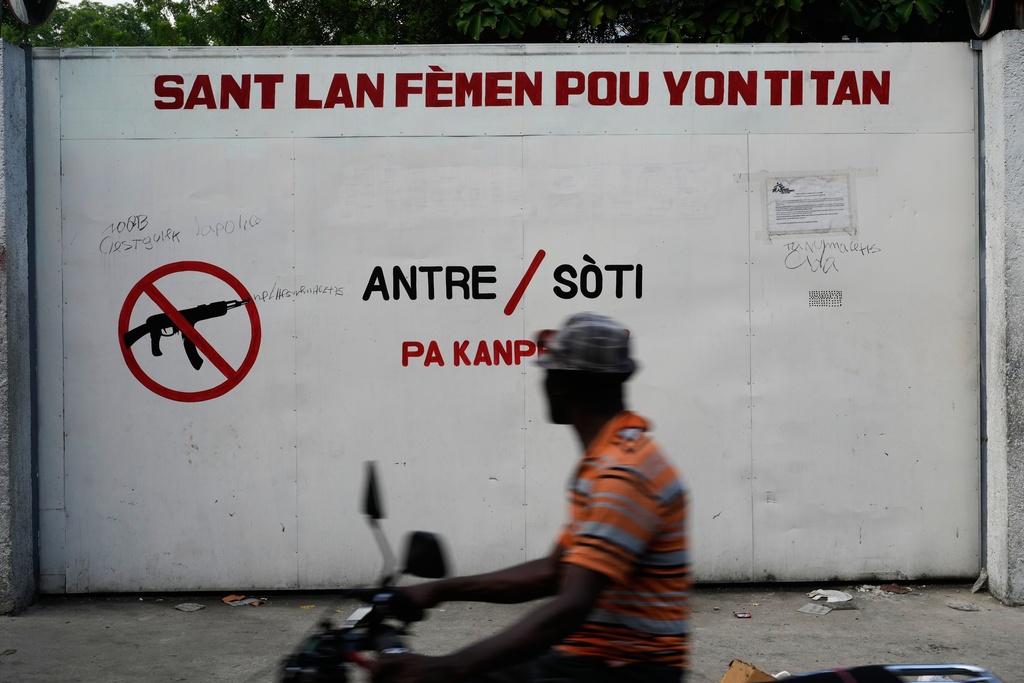Overview:
The Provisional Electoral Council (CEP) has announced that due to persistent insecurity and the lack of guaranteed funding, holding elections in Haiti is ‘materially impossible’ before the Transitional Presidential Council’s (CPT) mandate ends on February 7, 2026. CEP will continue electoral preparations, though no new election date has been set.
PORT-AU-PRINCE — The president of Haiti’s Provisional Electoral Council (CEP), Jacques Desrosiers, put an end to speculation about the elections slated for this month by finally saying it is not feasible to organize elections in 2025. However, Desrosiers said, the CEP will continue its preparations for Haitians to eventually elect a government of their choosing.
“It is materially impossible to hold elections before Feb 7,” Desrosiers said, referencing the 2026 date by which the current provisional government is to turn over the reins to newly elected officials.
“We will technically do everything required at the level of the Electoral Council to organize the elections,” he added. “But there must be an improvement in security and the necessary funds must be made available for the process.”
Desrosiers was speaking on Radio Mega last week when he made the statements. He has not yet announced a possible date for holding the elections, whose estimated $137 million cost is only half funded.
Failing to hold elections is a potential violation of the mandate given to the Provisional Presidential Council (CPT) when it was installed in 2024 to mainly ensure conditions would allow elections to be held. At the time, the international community, led by Caricom, insisted elections would be held.
CPT members and Caricom leads had not returned messages seeking comment about the implications for missing the elections deadline, as of Monday afternoon.
A government vacuum widens
Currently, Haiti has no elected officials to fill its hundreds of executive, legislative and judicial government positions since 2023. That year, the last of the officials elected in the last elections held in 2016 and 2017 saw their terms expire. Two years prior, Jovenel Moïse, Haiti’s last elected president, was brutally murdered inside his home.
During the four-year transition following Moïse’s assassination, only interim and provisional leaders have sat in the government positions, from the presidency to the boards of the communal sections. Back in 2023, Caricom brokered a deal that created the Provisional Presidential Council (CPT). Its main role is to ensure conditions are conducive to hold the elections required to pursue safety and stability.
Now, with just three months remaining to the end of its mandate, the nine-member CPT is attempting to prioritize holding elections. In an Oct. 21 note, the Ministry of Justice and Public Security (MJSP) announced that it approved more than 220 political parties for participation in the elections.
Two Presidential Advisors then visited the Provisional Electoral Council’s offices to inquire about its progress. On Nov. 1, the CPT launched a new phase aimed at strengthening political parties’ capacity by training them on methods to manage internal governance, electoral legislation and political ethics.
To several groups, however, the CPT’s efforts have been lacking. Some observers, including a few within the CPT, have criticized the transitional group’s current progress as a failure.
Acknowledging the delays in organizing the 2025 elections, Louis Gérard Gilles, an advisor to the CPT, said that the CEP will continue moving forward the electoral process even after the Presidential Council’s term ends on Feb 7.
“It is not too late to properly launch the electoral process, which should begin soon,” added Emmanuel Vertilaire, another CPT presidential advisor, echoing Gilles, who stated that “Even after the CPT’s departure, the electoral process will continue until the next elections.”
Election funding falls short, pressure and violence grow
Meanwhile, U.S. pressure on Haitian authorities to hold elections remains strong. Early in October, the U.S. Chargé d’Affaires in Haiti, Henry Wooster, warned members of the CPT and Prime Minister Alix Didier Fils-Aimé not to use the constitutional reform process or the ongoing insecurity as excuses to delay elections and remain in power. The CPT later canceled the reform campaign.
“Political positions are not for life,” Wooster said on Oct. 4, after returning from the United Nations Assembly General in New York. “Everyone must support security in Haiti and enable its transition. There needs to be a democratically elected head of state.”
Carlos Ruiz Massieu, head of the United Nations Integrated Office in Haiti (BINUH), reminded the U.N. Security Council that the electoral council had assessed voting centers in nine of the country’s 10 departments. As of June, about 1,300 centers were identified to serve nearly 6.2 million voters.
According to the United Nations, the CEP informed the Haitian government that the first round of elections would require a budget of approximately $137 million. This total amount remains to be finalized, however.
Also, insecurity continues to pose a major obstacle to holding elections. Nearly 90% of the capital is under gang control and parts outside Port-au-Prince are increasingly feeling their wrath. More than 1.4 million displaced people have still not been able to return to their homes.
“Time is running out for the transition,” Massieu said. “I fear that a stable path toward restoring democratic governance has yet to emerge.”













